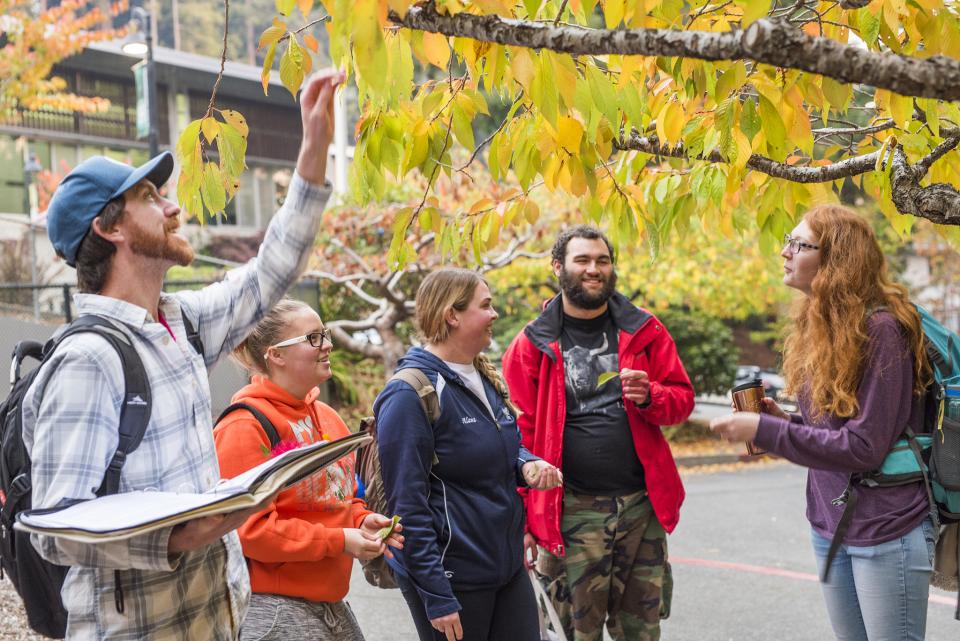Goal 3. To exemplify, promote, and teach environmental sustainability in recognition that healthy social and economic systems depend on the resilience of ecological systems
Objective 3.1 Every student has the opportunity to learn about environmental sustainability
| Performance Indicator | Baseline | Action Item |
|---|---|---|
| Disciplinary Coursework addressing environmental sustainability is included in every academic program. | The campus STARS report awarded HSU a score of 9.77/14 for access to Academic courses related to sustainability. CNRS has 96 courses in the 2018-19 course catalog (41% of such courses at HSU) that are designated as Sustainability-focused or sustainability-related. The majority of these are included in the degree programs offered by the following departments: ERE, ESM, FISH, FWR, GEOL, OCN, and WLDF. In May of 2018 a campus-wide sustainability working group, led by CNRS faculty, drafted a climate change Resilience Curriculum Proposal. The STARS report of 2017 rated HSU in its top category. | Identify programs of study where there are no explicit requirements for sustainability coursework, and find ways to include sustainability in existing or new coursework, in both undergraduate and graduate programs. |
| Area B General Education coursework offered in CNRS addresses environmental sustainability. | Of the 96 courses listed above, 23 are included in the General Education Curriculum | Work toward a majority of area B courses to receive the designation of sustainability-focused or sustainability-related. |
| Community outreach, including public lectures, demonstrations, workshops, partnerships with K-12 educators, and printed information, emphasizes environmental sustainability. | CNRS has not tracked this activity | Track and encourage such outreach |
Objective 3.2 Faculty, Staff, and Students practice environmental stewardship
| Performance Indicator | Baseline | Action Item |
|---|---|---|
| Laboratory materials maximize the use of reusable materials and minimize the use of disposable materials. | CNRS has not tracked metrics for this indicator. | Design and implement a tracking system to measure environmental stewardship practices. |
| Field trips maximize the use efficient transportation, staying local when feasible. | CNRS has not tracked metrics for this indicator. | Design and implement a tracking system to measure environmental stewardship practices. |
| Paperless versions of course materials (syllabi, etc.) and assignment submissions are available for all courses . | CNRS has not tracked metrics for this indicator. | Design and implement a tracking system to measure environmental stewardship practices. |
| Faculty/Staff/Student participation in carpool programs, public and human-powered transportation. | CNRS has not tracked metrics for this indicator. | Design and implement a tracking system to measure environmental stewardship practices. |
Objective 3.3 Students, staff, and faculty engage in scholarship and activities in support of environmental sustainability
| Performance Indicator | Baseline | Action Item |
|---|---|---|
| Grants and contracts awarded that address environmental sustainability or climate change | The campus STARS report (2017) rated the campus for sustainability research as 8.23/12. 15 of the 18 researchers and 34 of the 39 grant projects identified in the HSU report are from CNRS | Continue monitoring the STARS (Sustainability Tracking, Assessment & Rating System) report |
| The number of students engaged in directed studies or research projects (undergrad or grad) that address environmental sustainability or climate change | CNRS has not tracked metrics for this indicator. | Design and implement a tracking system to measure student engagement in sustainability. |


